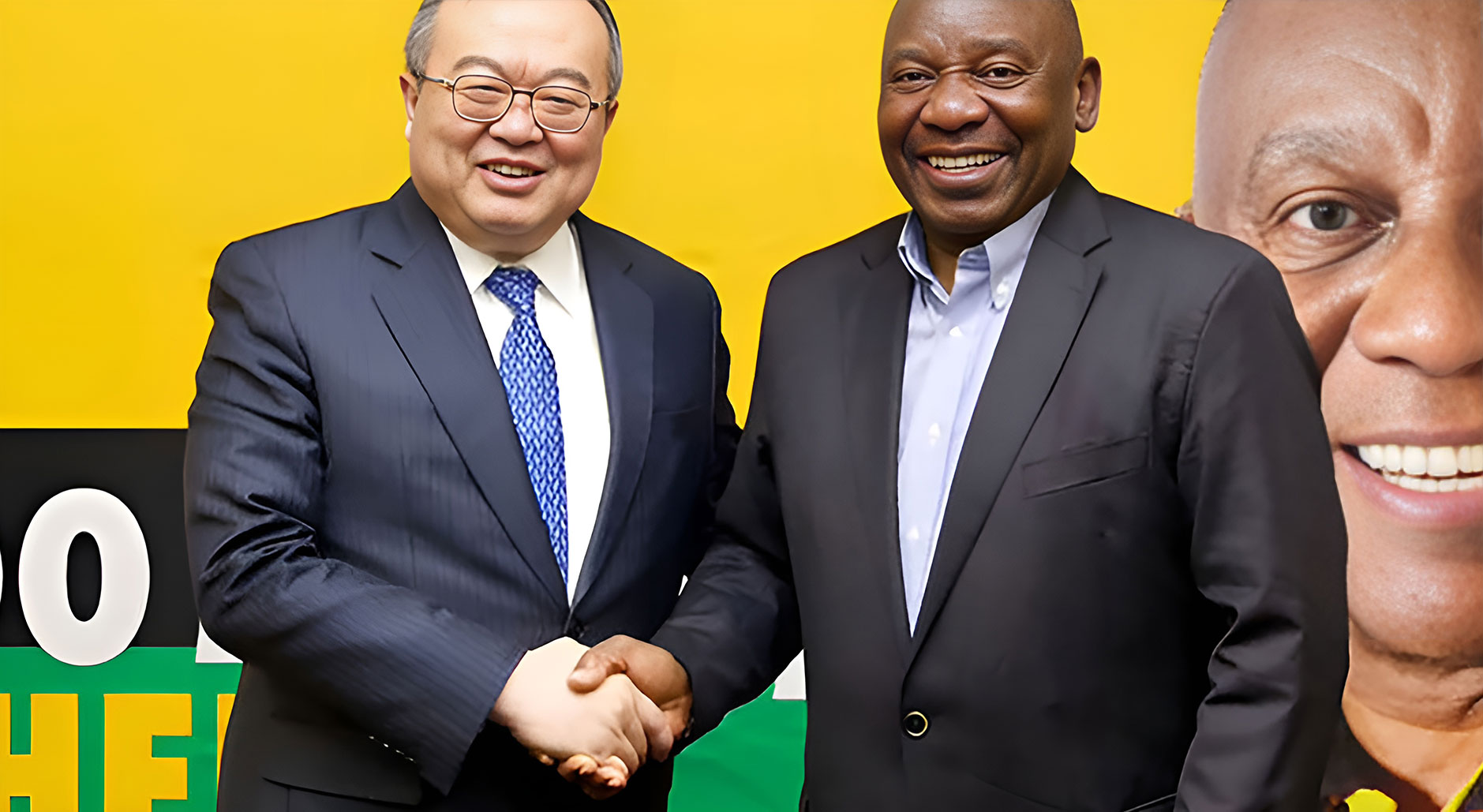The Chinese Communist Party says that President Cyril Ramaphosa has assured it that the Government of National Unity (GNU) will not change South Africa’s China policy, including on the highly sensitive issue of Beijing’s claim to Taiwan.
Liu Jianchao, minister of the International Department of the Central Committee of the Communist Party of China (CPC), met Ramaphosa last week on a visit to South Africa at the head of a delegation of senior CPC officials who also met ANC Secretary-General Fikile Mbalula, SA Communist Party General Secretary Solly Mapaila and International Relations and Cooperation Minister Ronald Lamola.
At a meeting with journalists and think tanks in Cape Town on Friday, Liu was asked whether China was concerned that the GNU might change South Africa’s policies towards China. The Democratic Alliance and Inkatha Freedom Party, which are prominent members of the GNU, are far less clear-cut in their position on Beijing’s claim to Taiwan and some of their officials have visited Taiwan, to the annoyance of the ANC and Beijing, which regarded the visits as de facto recognition of Taiwan as an independent state.
“One of the fundamental principles of China’s foreign policy is that we don’t interfere in the domestic affairs of a country, so we respect the choice of the people,” replied Liu.
He added that the CPC had confidence in the China-South Africa strategic partnership and friendship because it had already benefited the South African and Chinese people and would continue to do so in the future. That was because there were so many commonalities between China and South Africa in terms of national development and “working together to make sure that our people will enjoy a better life.
“I met the President [Ramaphosa] yesterday. And I was assured of the continuation of the China policy of South Africa. I also received assurances that the core policies of South Africa on issues of China concern, for example, the Taiwan issue and other issues … will not change.”
Read more: GNU’s foreign policy mirrors that of the ANC, says new minister Ronald Lamola
“We do have good faith in the GNU, the new government, led by President Ramaphosa.”
Liu added that Ramaphosa intended to lead a delegation of Cabinet ministers of the different parties in the GNU to China. “And I think that this visit will also play a role that would make the new government officials of South Africa to understand China better.”
Transnet locomotives
Liu was also asked whether there had been any progress in resolving the dispute between South African parastatal Transnet and the state-owned China Railway Rolling Stock Corporation (CRRC) about Transnet’s controversial purchase of 1,064 heavy-duty locomotives — of which about a quarter were from CRRC — during the Zuma administration.
It later emerged that these locomotive contracts had been tainted by corruption and it was alleged that CRRC had paid kickbacks to Salim Essa, a close associate of Zuma’s business cronies the Gupta family.
The upshot was that certain CRRC accounts in SA were frozen and the SA Revenue Service (SARS) demanded unpaid tax of about R4-billion from CRRC, which reacted by freezing its servicing of the locomotives.
This meant that the locomotives often became unusable because of a lack of spare parts, and Transnet’s ability to transport coal and other products was undermined. The dispute has been locked in litigation for years and efforts by the SA government to negotiate a resolution with Beijing have also been fruitless.
‘Commercial dispute’
At Friday’s briefing, China’s ambassador to South Africa, Wu Peng, said it was “not suitable” to ask Liu about this issue because “it’s a totally commercial dispute”. The dispute was in the courts and the Chinese government would respect South Africa’s legal system, he said.
He added, though, that if Transnet and the South African government wanted the Chinese government to intervene through negotiation “the case must be out of the legal procedure, right?”
Wu also responded to an analyst who noted that of the 52 African countries participating in China’s immense Belt and Road Initiative (BRI) — a broad development programme spanning the world — 17 were in debt distress and another 31 countries were in debt stress, not yet in debt.
Many critics of the BRI have said it has induced African countries in particular to incur unaffordable debt from China to finance BRI infrastructure projects. Some have even suggested that Beijing has deliberately led African countries into “debt traps” so that it can seize the financed infrastructure offered as collateral.
Read more: Navigating the complex terrain of China-Africa debt relations
Wu said, “The narrative is wrong … that China intends to give African countries more than what they can afford.”
He noted that both Ghana and Zambia had defaulted on loans to China but China had not confiscated any mortgaged property as compensation. He said the average share of Chinese loans in Africa’s total debt was “quite limited” at 10%, though it was higher in some individual countries, like Zambia.
He said Zambia had used a loan of about $1.4-billion from the Industrial and Commercial Bank of China to construct the Kafue Gorge Lower Hydropower Station.
“I personally visited that power station two years ago. Actually, it’s like a cash machine. You know, just one day it can generate one million, 1.5 million US dollars. So if you calculate, it’s a good project, right?” DM





